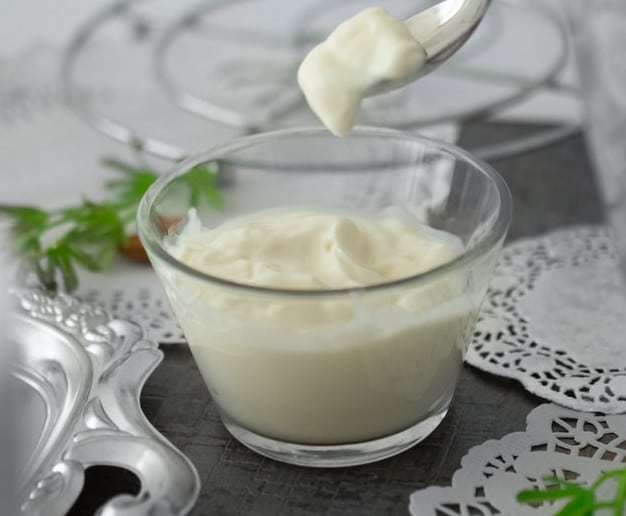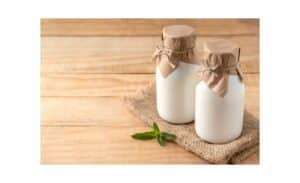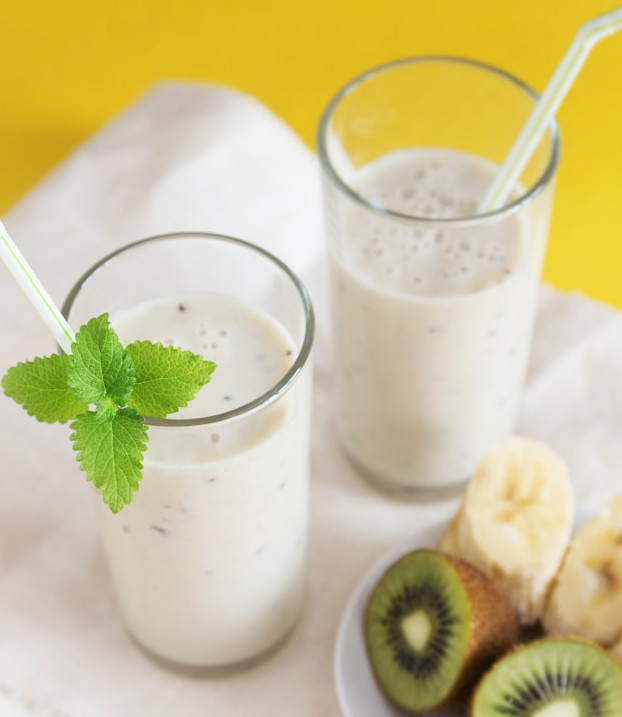The use of probiotics to improve digestive health has become increasingly popular in recent years. There are many types of probiotics, and it can be difficult to know which ones are best for you. To help guide your decision-making process, it is important to understand the different types of probiotics.
What are Probiotics and How Do They Impact On Health?
There are 2 types of bacterias in our body
- Good bacteria
- Bad bacteria
Good bacteria in the body are bacteria that help to improve health and Bad bacteria can exist in human bodies at low levels without causing much harm. Probiotics are beneficial bacteria. If you don’t eat probiotics, then the delicate balance can be disrupted, and “bad” bacteria may begin to take over.Probiotics help to balance the bacteria in our gut, which can have a positive effect on our overall health and well-being.
Eating nutritious probiotic foods is essential for maintaining a healthy gut and boosting your immunity.
Probiotics are living microorganisms that can provide numerous health benefits when consumed regularly. Bacteria that help break down food, absorb nutrients, and strengthen the immune system are called probiotics. They also help to balance the levels of good and bad bacteria in your gut.
What are the Advantages of a probiotic ?
- Improves digestion:- By breaking down food and enhancing nutrient absorption, probiotics promote digestive health and prevent gas and bloating.
- Build immunity:-In addition to strengthening the immune system, a healthy gut also helps your body fight infections more effectively.
- Improves mental health:-According to emerging evidence, probiotics may be useful in improving mood and reducing anxiety, as well as gut health.
- Controls Inflammation:-Taking probiotics may prevent inflammatory digestive disorders by reducing inflammation in the gut.
- Boosts Metabolism:-There is evidence that certain probiotics could help you lose weight and maintain a healthy metabolism.
Common Types of Probiotics
Two Commonly available Types of Probiotics are:-
1. Lactobacillus:-Fermented foods such as yogurt contain this type of probiotic.A lactose-intolerant person can benefit from it since it produces lactase, an enzyme that breaks down lactose.
2. Bifidobacterium:-Bifidobacterium is commonly found in dairy products, where it helps digest complex carbohydrates.
Probiotics are also made from good yeast and saccharomyces boulardii. Saccharomyces boulardii is the most common yeast found in probiotics
4 Surprising Signs That Show You’re Not Getting Enough Probiotics in Your Diet
There are some surprising signs that can indicate that you may not be getting enough probiotics in your diet. The following 4 surprising signs can indicate a lack of probiotics in your diet, ranging from automatic signs such as bloating and gas to more subtle signs such as fatigue.
- Chronic Fatigue:- You feel Constantly tired and drained and it con be because of imbalanced Gut Health.
- Insomnia:- You are unable to get a sound sleep and find trouble in sleeping.
- Decline in memory:- Poor Gut health may impact your memory.
- Anxiety and Mood Disturbances:- Gut health is connected to the mood and hence affect mood regulation.
Now, let us see which food can help us.
Which foods are considered probiotics?
1. Green Olives

Green olives are Anti-inflammatory and antioxidant.
They are one of the most popular fermented foods that are filled with nutrition.
When you consume it, you are adding beneficial bacteria and enzymes to your intestinal flora, which increases the health of your gut microbiome and digestive system and may enhance your immune function.
Olives are placed in a mixture of salt and water for a specific number of days. It ferments. This removes the bitterness from it and makes it safe to consume. They are anti-inflammatory, and antioxidants.
They are easily available in the market and you can add them to mid-meals as well as add them in salads.
2. Yogurt/ Curd

Yogurt is popular probiotic food that is easily available in the market. There are different ways to consume it. Yogurt is a probiotic because it contains those bacteria that are good for the guts.
As we all know both Calcium and Vitamin D are needed for Stronger bones, eating Yogurt can help you to minimize Arthritis and other bone-related problems. A daily consumption of 1 cup of Yogurt provides the required amount of Calcium, Zinc, and Vitamin D. It also keeps skin toned and smooth.
So, have a bowl of yogurt daily at lunchtime. There are different yogurt drinks available in the market such as Yakult and Actimel. Yakult contains 6.5 billion LCS bacteria per bottle. It keeps your gut microbiome healthy and populous. While buying yogurt, look for the words “live and active cultures” on the label. It indicates that it contains probiotics. Avoid eating yogurt at night as it can cause a Cold or Cough.
3. Kefir

Kefir is a fermented drink. It is very high in probiotics. It is prepared by mixing kefir grains or granules with cows’ or goat’s milk. After approximately 24 hours, the microorganisms in the kefir grains multiply and ferment the sugars in the milk, turning them into kefir. Then, the grains are removed from the liquid and can be used again.
Kefir drink is 99% lactose-free. So if you are lactose-intolerant, you can go for kefir without a second thought. It heals the cells of the entire body and boosts immunity thus preventing you from contracting seasonal or other problems.
Kefir is a great source of Magnesium, Vitamin k2, Folates, Thiamine, B12, and other B vitamins.
Many people consider it to be more nutritious than yogurt.
4. Buttermilk

Buttermilk is an excellent alternative for those who are lactose intolerant and cannot have milk. Drinking a glass of buttermilk during summer can prevent dehydration as it possesses Potassium, Calcium, Phosphorus, and Water. It helps relieve acidity problems.
How to make Buttermilk?
Ingredients:-Take 1 and a half cups of yogurt, 1 tsp of roasted ground cumin seeds, 1 tsp of chopped coriander or mint leaves, and 1 tsp of pink salt/ rock salt.
Process:-Put all the ingredients in a large bowl and churn it well by mixing water as per your taste. And enjoy anytime in the summer or after lunch.
It can be taken every day.
5. Sour Pickles

Sour pickles, also known as dill pickles, are cucumbers that have been pickled in a brine solution containing vinegar, water, salt, and dill weed. The pickling process gives the cucumbers a tangy and sour flavor, hence the name “sour pickles.”
To make sour pickles, cucumbers are first washed and then placed in jars or containers along with dill weed, garlic, and other desired spices or flavorings. The brine, made from vinegar, water, and salt, is then poured over the cucumbers, completely covering them. The jars are sealed and left to ferment for several days to develop the desired sourness.
During the fermentation process, beneficial bacteria that are naturally present on the cucumbers or added to the brine help to convert the sugars in the cucumbers into lactic acid, which gives the pickles their tangy flavor. The longer the pickles ferment, the sourer they become.
Sour pickles are a popular condiment and snack, often enjoyed on their own or served alongside sandwiches, burgers, or hot dogs. They can also be used in recipes such as relishes, salads, and dressings, adding a burst of tangy flavor.
How Long do Probiotics Take to Work?
The time it takes for probiotics to work depends upon the reason why you are taking it for?
- Digestive Issues: If you’re taking probiotics to address common digestive issues like diarrhea, bloating, or gas, you may start to notice improvements within a few days to a couple of weeks. It can help rebalance the gut microbiota and alleviate these symptoms relatively quickly.
- Immune Support: Some people take probiotics to support their immune system. It may take several weeks or even a few months of consistent use before you notice any changes in immune function. Probiotics can help strengthen the gut-associated immune system over time.
- Chronic Conditions: For chronic conditions like irritable bowel syndrome (IBS) or certain autoimmune disorders, it may take several weeks to a few months of continuous probiotic use to see noticeable improvements. The effectiveness can vary from person to person.
It can be used as a long-term maintenance strategy for promoting gut health. Regular, ongoing use of it may help maintain a balanced gut microbiota, which can contribute to overall well-being and digestive health.
It is important to note that not all probiotics are the same, and their efficacy can vary widely depending on the strain, dosage, and individual factors. What works quickly for one person may take longer for another.
In summary, the time it takes for probiotics to work varies based on the individual and the reason for taking them. While some people may experience relief from digestive issues relatively quickly, others may need more time, especially for chronic conditions or immune support. Patience and consistency are essential when using probiotics for health benefits.
Conclusion
Having a poor gut health can lead to a number of health problems. When you have constipation or indigestion, it can disrupt your routine and make you feel unwell. Eating probiotics can help as they are the good bacteria that your body needs. There are so many probiotic supplements available if you don’t get it enough from natural foods.
Remember, always consult a healthcare professional before making significant changes to your diet or taking new supplements.
Make sure to incorporate these foods into your daily diet and improve your well-being and overall health.
If you have any thoughts or comments on this article, we would love to hear them.
ALSO SEE:


